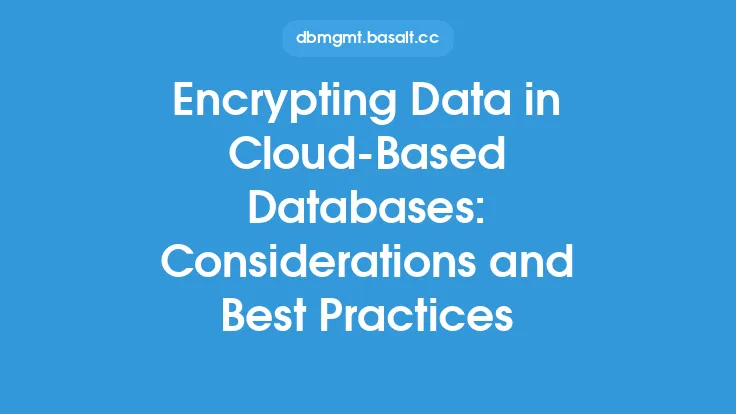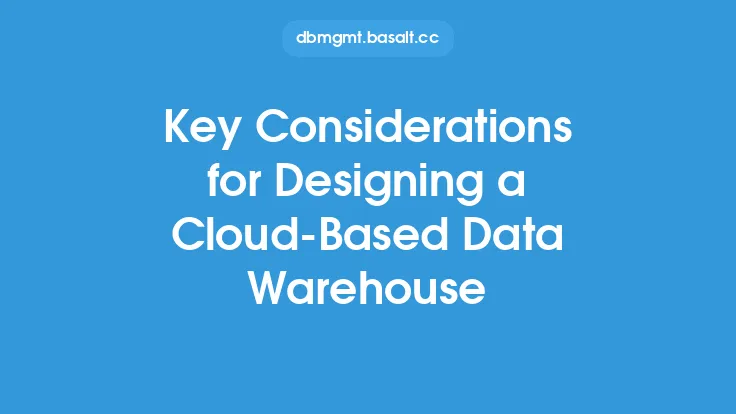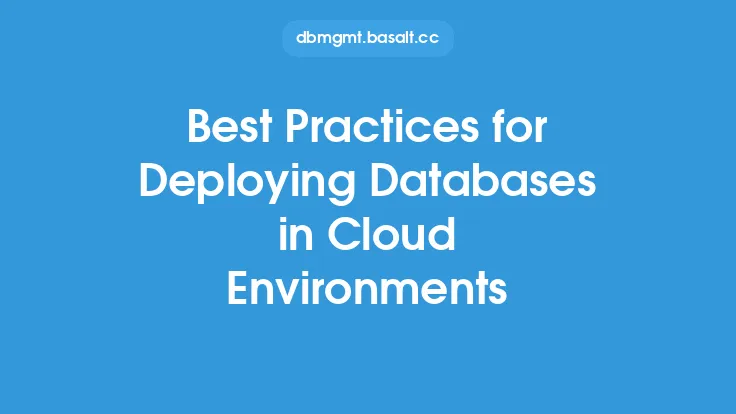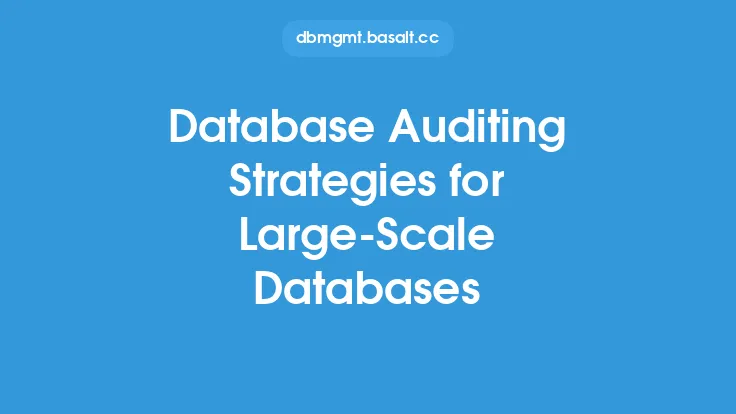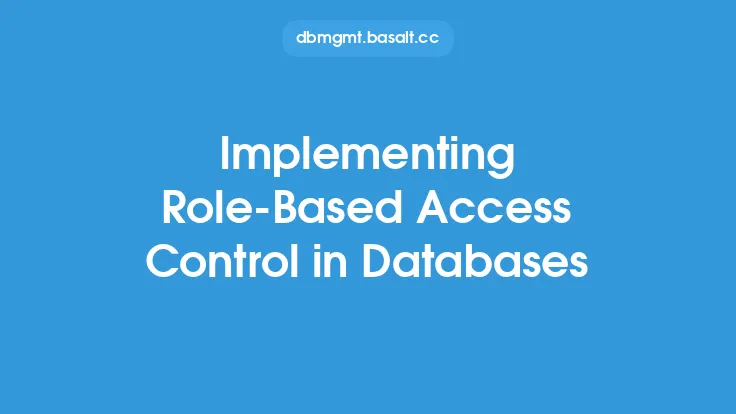As organizations increasingly move their databases to the cloud, they must navigate a complex landscape of compliance considerations. Cloud-based databases offer many benefits, including scalability, flexibility, and cost savings, but they also introduce new risks and challenges. In this article, we will explore the key compliance considerations for cloud-based databases, including data sovereignty, security, and regulatory requirements.
Data Sovereignty and Cloud-Based Databases
Data sovereignty refers to the concept of data being subject to the laws and regulations of the country in which it is stored. When data is stored in a cloud-based database, it may be subject to the laws of multiple countries, depending on the location of the data centers and the cloud provider's policies. This can create compliance challenges, particularly for organizations that operate in industries with strict data sovereignty requirements, such as finance and healthcare. To address these challenges, organizations should carefully evaluate the data sovereignty implications of their cloud-based database deployments and consider using cloud providers that offer data sovereignty guarantees, such as data storage in specific regions or countries.
Security Considerations for Cloud-Based Databases
Security is a critical compliance consideration for cloud-based databases. Cloud-based databases are vulnerable to many of the same security threats as on-premises databases, including unauthorized access, data breaches, and malware attacks. However, cloud-based databases also introduce new security risks, such as the risk of data being intercepted or accessed during transmission to or from the cloud. To mitigate these risks, organizations should implement robust security controls, including encryption, access controls, and monitoring and logging. They should also ensure that their cloud provider has a strong security posture and can provide evidence of compliance with relevant security standards and regulations.
Regulatory Requirements for Cloud-Based Databases
Cloud-based databases are subject to a wide range of regulatory requirements, including data protection laws, industry-specific regulations, and standards for security and compliance. For example, organizations that operate in the European Union must comply with the General Data Protection Regulation (GDPR), which imposes strict requirements for the protection of personal data. Similarly, organizations that operate in the healthcare industry must comply with the Health Insurance Portability and Accountability Act (HIPAA), which imposes strict requirements for the protection of protected health information (PHI). To ensure compliance with these regulations, organizations should carefully evaluate the regulatory requirements that apply to their cloud-based database deployments and implement controls and processes to ensure compliance.
Compliance Frameworks and Standards for Cloud-Based Databases
There are several compliance frameworks and standards that can help organizations ensure the compliance of their cloud-based databases. For example, the Cloud Security Alliance (CSA) provides a framework for cloud security and compliance, while the International Organization for Standardization (ISO) provides a standard for cloud security and compliance (ISO 27017). Additionally, the National Institute of Standards and Technology (NIST) provides a framework for cloud security and compliance (NIST SP 800-53). These frameworks and standards can provide a useful starting point for organizations that are seeking to ensure the compliance of their cloud-based databases.
Best Practices for Ensuring Compliance in Cloud-Based Databases
To ensure compliance in cloud-based databases, organizations should follow several best practices. First, they should carefully evaluate the compliance implications of their cloud-based database deployments and consider using cloud providers that offer compliance guarantees. Second, they should implement robust security controls, including encryption, access controls, and monitoring and logging. Third, they should ensure that their cloud provider has a strong security posture and can provide evidence of compliance with relevant security standards and regulations. Finally, they should regularly review and update their compliance controls and processes to ensure that they remain effective and compliant with changing regulatory requirements.
Technical Considerations for Compliance in Cloud-Based Databases
From a technical perspective, there are several considerations that organizations should keep in mind when ensuring compliance in cloud-based databases. For example, they should ensure that their cloud-based database is configured to use secure protocols for data transmission, such as SSL/TLS. They should also ensure that their cloud-based database is configured to use secure authentication and authorization mechanisms, such as multi-factor authentication. Additionally, they should ensure that their cloud-based database is configured to provide robust monitoring and logging capabilities, including the ability to track and audit all access to and changes to the database. By considering these technical factors, organizations can help ensure the compliance and security of their cloud-based databases.
Conclusion
In conclusion, compliance is a critical consideration for cloud-based databases. Organizations must navigate a complex landscape of data sovereignty, security, and regulatory requirements to ensure the compliance of their cloud-based databases. By following best practices, such as carefully evaluating compliance implications, implementing robust security controls, and ensuring compliance with regulatory requirements, organizations can help ensure the compliance and security of their cloud-based databases. Additionally, by considering technical factors, such as secure protocols, authentication and authorization mechanisms, and monitoring and logging capabilities, organizations can help ensure the compliance and security of their cloud-based databases. Ultimately, ensuring compliance in cloud-based databases requires a comprehensive and ongoing effort, but it is essential for protecting sensitive data and maintaining the trust of customers and stakeholders.
